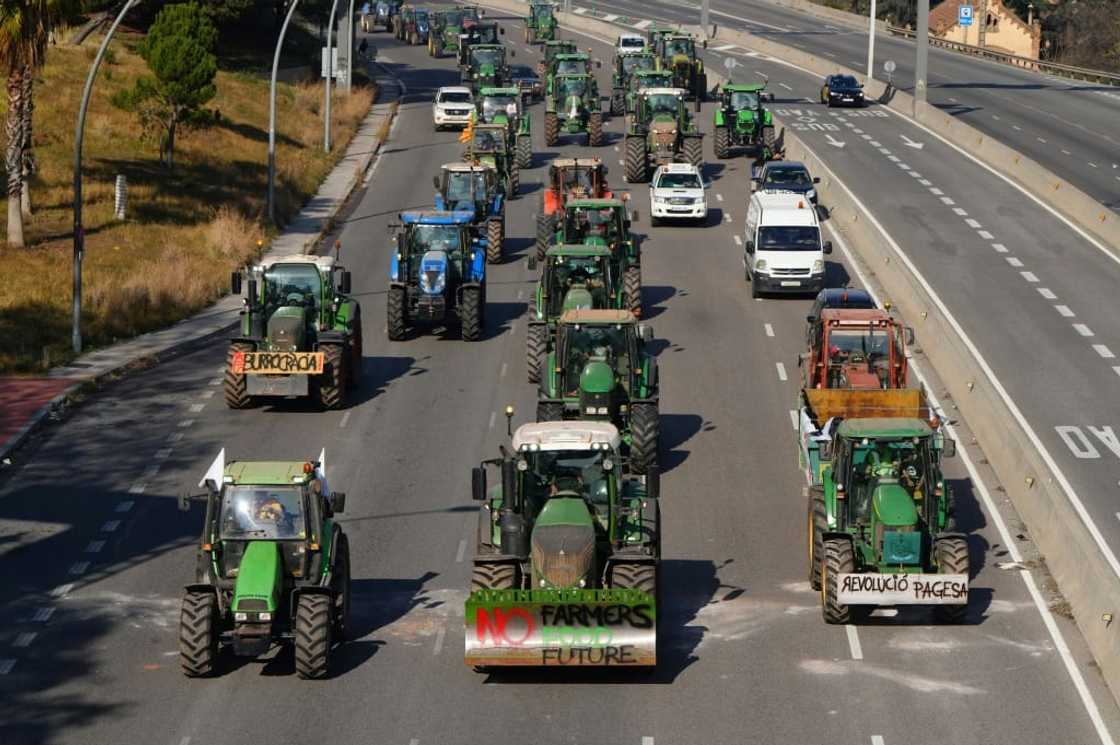Unions join Spanish farmer protests on third day

Source: AFP
Spanish farmers blocked roads across Spain on Thursday for the third day running to protest against heavy regulation and cheaper imports, with the country's main farmers' unions joining the demonstrations for the first time.
Several columns of slow-moving tractors took over roads to snarl traffic, particularly in the eastern region of Valencia, the northern region of Astoria and the central region of Castilla la Mancha.
While protesters on Tuesday and Wednesday were largely mobilised by activists via WhatsApp, some of Thursday's demonstrations were organised by Spain's three main agricultural unions -- Asaja, Coag and UPA.
"If the tractors are protesting, it's because the rural world feels suffocated," Asaja posted on X.
Almost 1,000 tractors drove Wednesday to the centre of Barcelona, Spain's second-largest city, where they rallied in front of the regional government headquarters.
Dozens of farmers spent the night in the centre of the city, capital of the drought-hit northeastern region of Catalonia, but most left on Thursday morning.
PAY ATTENTION: Let yourself be inspired by real people who go beyond the ordinary! Subscribe and watch our new shows on Briefly TV Life now!
The Fenadismer transport sector federation said 80,000 lorries were affected by the blockades and estimated the financial impact at 120 million euros ($129 million).
There have been some tense moments between demonstrators and police, with the interior ministry reporting 12 arrests across the country.
Angry farmers have been protesting across Europe in recent weeks over rising costs, high fuel prices, bureaucracy and the environmental requirements in the EU's Common Agricultural Policy (CAP) and its forthcoming "Green Deal".
During a meeting with reporters on Wednesday, Spanish Agriculture Minister Luis Planas said the situation was "complex" and repeated that the government was ready for "dialogue" with the protesters.
In response to the protests, Socialist Prime Minister Pedro Sanchez has vowed to simplify rules for the implementation of the CAP, and to improve laws aimed at ensuring that farmers do not have to sell products at a loss.
PAY ATTENTION: Follow Briefly News on Twitter and never miss the hottest topics! Find us at @brieflyza!
Source: AFP


